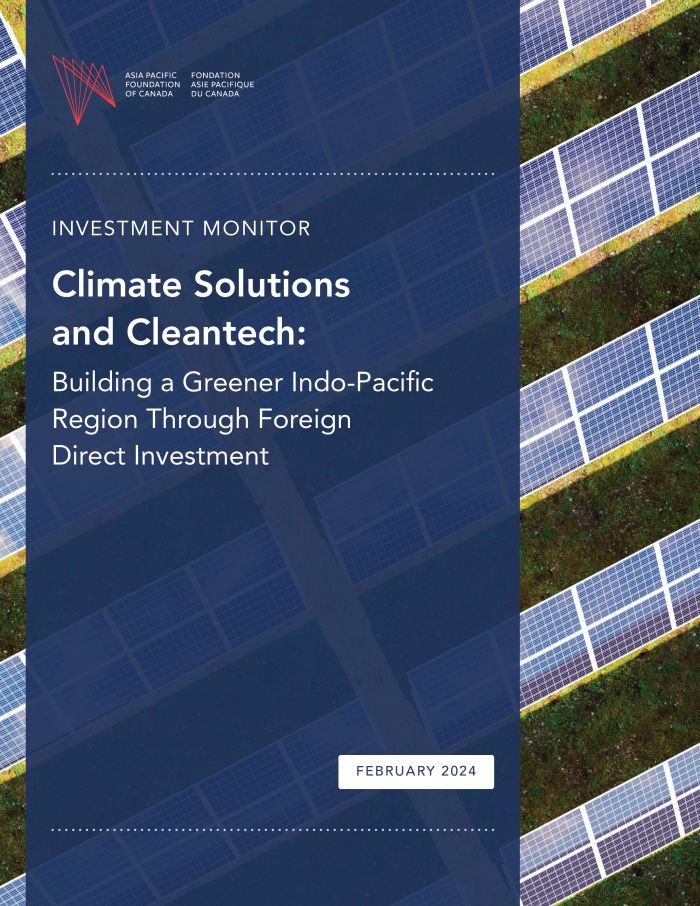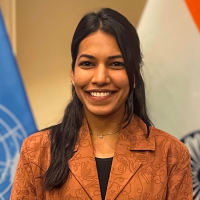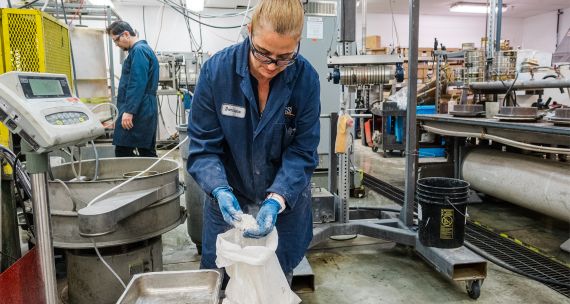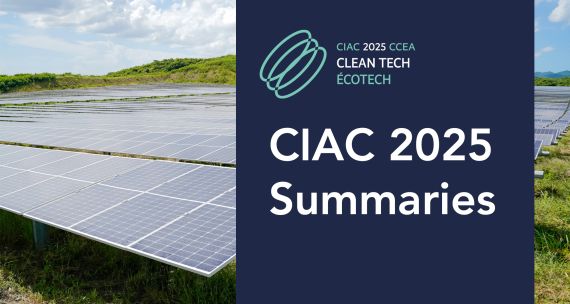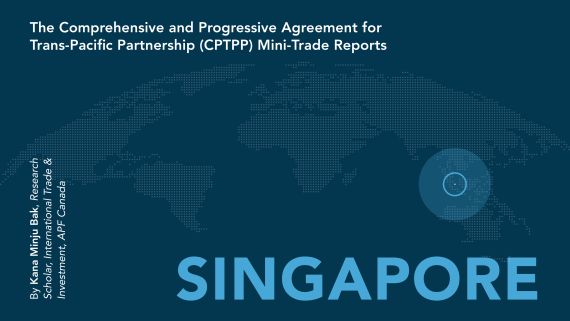The Asia Pacific Foundation of Canada’s Investment Monitor Report Climate Solutions and Cleantech: Building a Greener Indo-Pacific Region Through Foreign Direct Investment provides new insights into two-way foreign direct investment flows between Canada and Asia in the clean technology sectors of renewable energy and electric vehicles (EVs).
Canada’s 2022 Indo-Pacific Strategy identified clean technology and renewable energy as priority sectors for future economic collaboration between Canada and Asia. Understanding major trends in the Canada-Asia renewable energy and EV investment relationship over the past 20 years will better position today’s Canadian cleantech companies for successful integration into regional supply chains across the fast-growing and dynamic economies of the Indo-Pacific region.
Key Takeaways
-
Climate Solutions and Cleantech, our second Investment Monitor Report of 2024, finds that, in the renewables sector, Canadian outward investment accounted for 70% of two-way renewables investment between Canada and the Asia Pacific during the 20-year period between 2003 and 2023. In the EV sector, meanwhile, 64% of two-way investment was driven by Asian economies.
-
At the national level, the report shows Canadian investment diversification from China, with an increase in two-way investment with Australia, Taiwan, India, and South Korea that started in the 2010s and has since grown to comprise 67% of total two-way investment. China is Canada’s fifth-largest investment partner, with C$3.4B exchanged between 2003 and 2022, but this is primarily due to investments in the 2000-2010 period and is not a reflection of recent trends.
-
At the subnational level, three of Australia’s states – New South Wales, Western Australia, and Queensland – accounted for 25% of Canadian investment in renewable energy and EVs in the region. On the Canadian side of the investment relationship, the province of Ontario has been the largest recipient of Asian investment in renewables and EVs in Canada, attracting almost 90% of this investment (C$10.4B) over the past 20 years. Nearly one-half of this amount was invested in Ontario in the last four years, suggesting that province’s push to become an EV hub may be starting to pay off.
-
Climate Solutions and Cleantech: Building a Greener Indo-Pacific Region Through Foreign Direct Investment concludes with an overview of the role state-owned-enterprises (SOEs) play in Canada-Asia clean technology investment and a discussion of the implications of the report’s findings for future investment.
-
The data reveals that the majority of SOE investment was from Canadian SOEs, all of which were Canadian pension funds, accounting for 74% of total two-way SOE investment since 2003. Furthermore, 98% of this investment from Canadian pension funds occurred in the past five years, which suggests these Canadian SOEs are anticipating continued growth in the clean technology sector.
- Finally, the findings of this Investment Monitor Report suggest that the Canada-Asia investment relationship in clean technology will deepen. Many economies (including Canada, Australia, Japan, and South Korea) have committed to net-zero emissions by 2050 and will need to expand their production and use of clean technologies to meet these goals. This common objective provides an opportunity for Canada-Asia collaboration through two-way investment in natural resources, EVs, renewable energy, and the sharing of expertise.
This report draws on data from the Asia Pacific Foundation of Canada’s Investment Monitor database, which provides information on Canada-Asia Pacific investment flows at the national and sub-national levels. The database is publicly available on the Investment Monitor website, investmentmonitor.ca.
The Asia Pacific Foundation of Canada is grateful for the sponsorship and support it has received from Export Development Canada for the Investment Monitor project.
